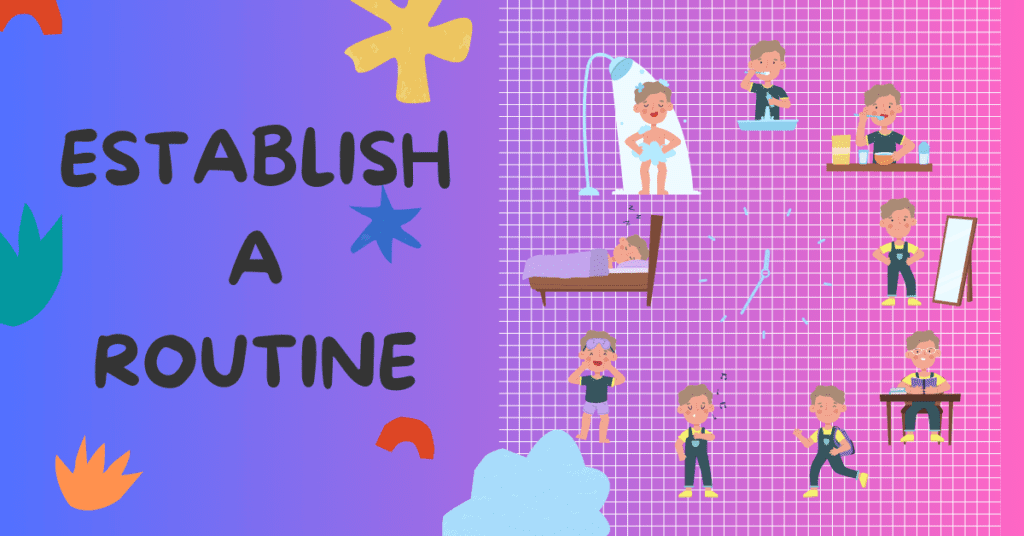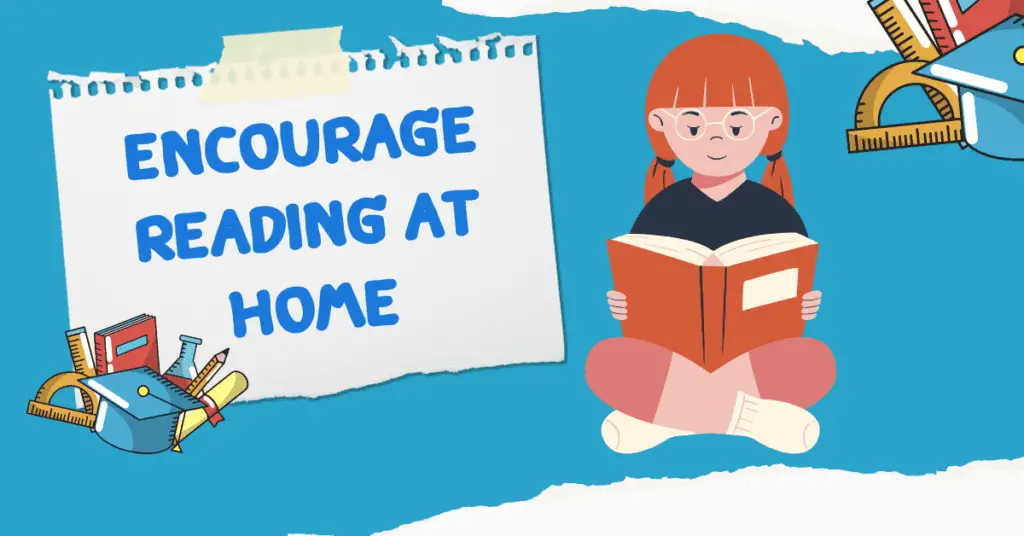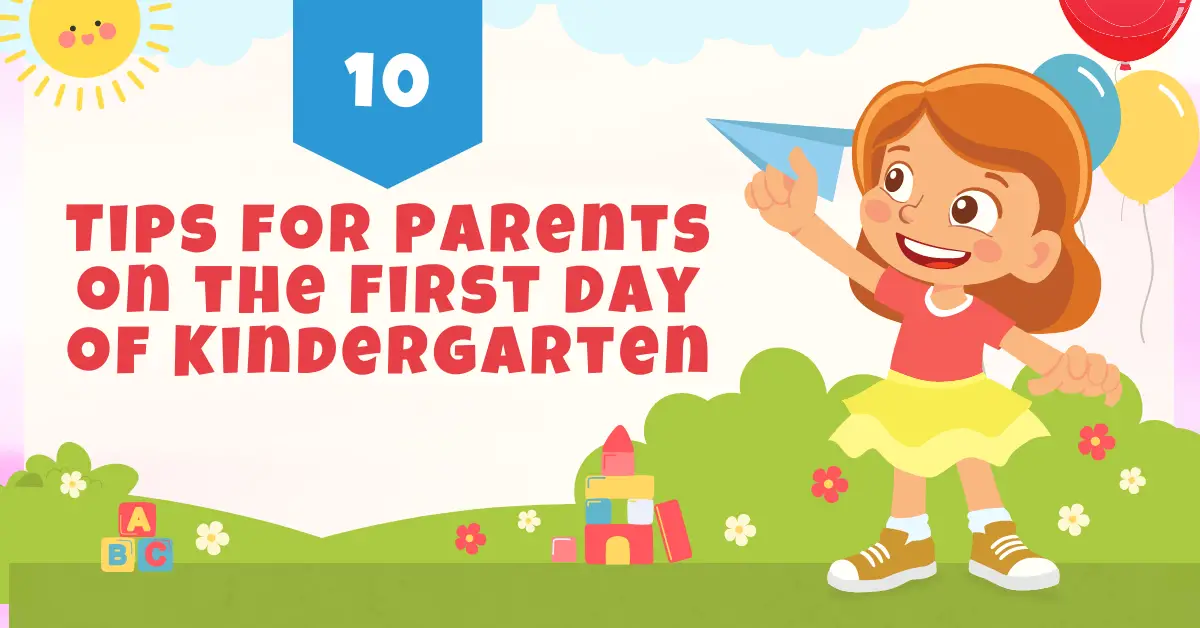Entering kindergarten is a significant milestone for any child, marking the start of their formal education. It can be a day filled with excitement, anticipation, and, of course, a few butterflies in the stomach – both for the children and their parents. Preparing for this off-to-school transition involves more than simply packing a lunchbox or waving goodbye at the school gates. It requires thoughtful preparation, building a sense of anticipation, and laying a solid foundation for a positive and fruitful school experience.
The importance of adequately preparing both parents and children for the first day of kindergarten cannot be overstated. It not only sets the tone for a child’s initial perception of school but also influences their overall attitude towards learning. However, the process can often seem daunting to parents who may be unsure about the best ways to ready their children (and themselves!) for this exciting new chapter.
This guide will walk you through ten practical and effective tips that can help parents navigate the first day of kindergarten with confidence and poise. From establishing healthy routines to fostering independence, shopping for school supplies to managing goodbyes, these tips will ensure that you’re fully prepared to support your child as they step into the world of kindergarten.
Remember, every child’s experience will be unique, and there’s no perfect way to navigate this journey. These tips are here to offer a roadmap, alleviate concerns, and help make this transition smoother and more enjoyable for you and your child.
Tip 1: Start Preparing Early
Preparation is the key to a smooth transition into kindergarten. To help ease any anxiety and create a sense of anticipation, start discussing the upcoming school start a few weeks in advance. This gradual introduction allows your child to adjust to the idea of kindergarten and can minimize stress or fears related to the unknown.
A. Importance of Starting to Prepare Weeks in Advance
Early preparation provides ample time to address any concerns your child might have and helps them develop a positive image of kindergarten. The more familiar the concept of school becomes, the less daunting it will seem when the first day arrives. This preparation phase is also an excellent opportunity to address any logistical issues like transportation and meal plans and make sure everything is in place before the school year starts.
B. Suggestions for What Preparations Can Include
Reading Books About School
Stories about characters attending school can provide a friendly introduction to what they might expect. They cover various topics, from making friends to what a typical school day looks like, which can be extremely reassuring for your child.
Visiting the School Building
If possible, make a visit to the school beforehand. Seeing the classrooms, playground, and other common areas can help your child visualize their new environment and become more comfortable with it.
Role-playing School Scenarios
Through pretend play, practice saying goodbye, sitting in a circle for story time, or other common school activities. This helps make these situations familiar, so they are less intimidating when encountered in real life.
Remember, the goal of early preparation is to foster excitement and confidence about kindergarten, not to make your child feel rushed or overwhelmed. Ensure the process is fun – maybe throw in a few jokes – and gradual, allowing your child to ask questions and express their feelings along the way.

Tip 2: Establish a Routine
As your child transitions to kindergarten, having a consistent daily routine can provide a sense of stability and predictability. It helps children know what to expect, reducing potential stress and anxiety.
A. Importance of a Consistent Bedtime and Morning Routine
A regular bedtime and morning routine is vital for kindergarteners. Adequate sleep ensures that your child is well-rested and ready for a day of learning. On the other hand, a calm and predictable morning routine helps kick-start the day on a positive note, reducing any potential rush or stress.
B. Ideas for Making the School Day Routine Fun and Manageable
Create a Visual Schedule
Children often find it easier to follow a routine when they have a visual cue. Consider making a chart or a picture schedule that outlines the activities of the day, including bedtime and wake-up time, meal times, and when to get ready for school.
Practice the Routine
Before school starts, practice the new routine. This dry run will help both you and your child get accustomed to the flow of a typical school day.
Include Some Fun Elements
Make the routine enjoyable. Maybe a special song plays when it’s time to wake up, or perhaps there’s a fun game involved in getting dressed. These fun elements can make adhering to a routine more exciting for young children.
Remember, the purpose of a routine is to provide a framework, not to restrict flexibility. It’s important to allow for deviations when necessary, such as on weekends or special occasions. But the more consistent the routine is, the easier it will be for your child to adjust to the structure that the school will provide.
Tip 3: Discuss What to Expect
Helping your child understand what to expect can make the transition to kindergarten smoother. If children have a clear idea of the school day structure, it reduces uncertainty and helps them navigate their new environment more confidently.
A. Importance of Talking About the School Day Structure
Walking your child through their day at school gives them a sense of predictability. It can significantly help to alleviate any nervousness about the unknown, which is often the root of first-day jitters.
B. Ideas for How to Explain Kindergarten Activities to Kids
Use Simple Language
When discussing school activities, use language your child can easily understand. Be as straightforward and specific as you can to provide a clear picture of the daily routine.
Discuss Different Parts of the Day
Explain what will typically happen in a day at kindergarten. Discuss different parts of the day such as learning time, playtime, lunchtime, and nap time.
Talk About Classroom Etiquette
Discuss the basics of behaviour in a classroom setting like taking turns, raising hands to ask a question, and listening when others are speaking.
Emphasize the Fun Parts
Make sure to highlight the enjoyable parts of going to school like making new friends, playing in the playground, or engaging in art and craft activities.
By talking about what to expect, you can demystify the experience of attending school for the first time. This can help your child approach the first day of kindergarten with a sense of excitement and readiness, rather than apprehension.

Tip 4: Encourage Independence
Fostering independence in your child is crucial as they start kindergarten. It not only makes their day-to-day activities in school easier but also boosts their confidence and self-esteem.
A. Discuss How Encouraging Independence Can Help the Child
Independence is a critical skill that allows children to manage simple tasks on their own, helps them feel more competent, and supports their learning and development. While teachers will certainly offer support, the ability to handle basic tasks independently can make the transition into the school environment smoother for your child.
B. Provide Suggestions Like Self-Care Tasks That Children Can Practice at Home
Dressing Themselves
Encourage your child to get dressed on their own. You can make this easier by choosing clothes that are simple to put on and take off.
Managing Personal Belongings
Teach your child to pack and unpack their school bag. Make sure they know where to find their lunch, how to open it, and the importance of putting things back where they belong.
Basic Hygiene Habits
Ensure your child can manage basic hygiene tasks such as using the toilet, washing hands properly, and using tissues when needed.
Eating Independently
Ensure your child is able to open their lunchbox, unwrap their food, and eat independently.
Remember, the goal is not perfection, but to instill confidence in your child. Be patient and give them space to learn and grow. Praise their efforts and successes to motivate them to try more new things on their own.
Tip 5: Shop for School Supplies Together
Transforming the task of school shopping into a shared activity can further build anticipation and excitement for the upcoming school year. It’s a practical way of involving your child in the preparation process and fostering a sense of ownership and responsibility.
A. Explain How Shopping Together Can Be a Fun Activity and Build Anticipation
Shopping for school supplies together can make your child feel involved and eager to start school. They get to choose their items, which not only adds a personal touch but also provides a tangible connection to the upcoming school experience.
B. Discuss Involving the Child in Picking Out Their Backpack, Lunchbox, Etc.
Choosing a Backpack
Allow your child to choose a backpack they love. It’s a significant part of their school gear, and personal preference can make it more special.
Selecting a Lunchbox
Involve your child in picking their lunchbox. It can be an opportunity to talk about the importance of healthy eating at school.
Picking School Supplies
While some items may be specific to the teacher’s list, there might be room for personal choice in items like folders, notebooks, or pencils.
Remember, while it’s essential to let your child make choices, provide guidance to ensure these choices are practical. The backpack should not be too big or heavy for your child to carry, and the lunchbox should be easy to open and close. Through this process, your child will feel an increasing connection to their upcoming kindergarten experience.

Tip 6: Make the First Day Special
The first day of kindergarten is a significant milestone in your child’s life. Celebrating this special day can help them feel excited and positive about this new journey.
A. Talk About the Importance of Celebrating the Milestone
Celebrating the first day of kindergarten emphasizes its importance and helps create positive memories associated with school. This approach not only marks the occasion but also makes your child feel special and valued, reinforcing their confidence and excitement.
B. Provide Ideas for How to Celebrate
Special Breakfast
Start the day with your child’s favourite breakfast. This not only sets a positive tone for the day but also ensures your child starts school with a full stomach.
First Day Photos
Establish a tradition of taking first-day photos each year. It’s a fun way to document the moment and will be great to look back on in the future.
Personalized Note
Consider leaving a personalized note in your child’s lunchbox. A small message of encouragement can go a long way in making them feel loved and reassured.
After-school Treat or Activity
Plan something fun for after school, like going for ice cream or spending time at the park. It gives them something to look forward to and helps end the day on a positive note.
Celebrating the first day in these little ways can provide your child with a positive mindset towards school, encouraging them to look forward to the exciting educational journey ahead.
Tip 7: Stay Positive and Excited
Children are intuitive and often pick up on their parent’s emotions. Your attitude can significantly influence how your child perceives the beginning of their kindergarten journey.
A. Discuss How Children Pick Up on Parents’ Emotions
It’s natural to feel a mix of emotions as your child starts school, but remember, your child can sense these emotions. Displaying a positive attitude and excitement can help them view this new chapter as a positive and exciting experience rather than something to be worried about.
B. Provide Suggestions for Showing Enthusiasm and Reassuring Any Fears
Show Excitement
Express your enthusiasm for your child’s first day of school. Talk about the fun activities they’ll get to do, the new friends they’ll make, and all the new things they’ll learn.
Reinforce Positivity
If your child expresses fears or concerns, validate their feelings but also help them see the positive aspects. Remind them of the preparations you’ve done together and how ready they are for this new adventure.
Keep Worries to Yourself
Try not to discuss any of your anxieties about the first day of school in front of your child. They might pick up on these fears and become more anxious themselves.
Remember, while it’s essential to stay positive, it’s equally important to be there for your child if they’re feeling nervous. Let them know that it’s okay to feel a bit unsure, and reassure them that they’ll have your support throughout this exciting journey.

Tip 8: Practice Goodbye Rituals
Saying goodbye, especially on the first day, can be a challenging moment for both parents and children. Having a goodbye ritual can provide a sense of comfort and security, making the separation process smoother.
A. Discuss Why Goodbye Rituals Can Help Ease Separation Anxiety
Goodbye rituals provide predictability and can help alleviate any separation anxiety your child might feel. They give your child a sense of what to expect, making the transition from home to school smoother and more manageable.
B. Provide Ideas for Creating Comforting Goodbye Rituals
Create a Consistent Goodbye Ritual
This could be a special handshake, a hug, a wave, or even a special phrase that you both say. Consistency is key as it gives your child a sense of security and something to look forward to.
Practice the Ritual
Practice the goodbye ritual a few times before the first day of school so that your child is familiar with it.
Be Quick and Confident
While it can be hard, try to keep your goodbye brief and confident. Long goodbyes can make children feel more anxious.
Reassure Your Child
Let your child know when you’ll be back to pick them up. This can provide additional comfort as they have a specific time frame in mind.
Goodbye rituals can significantly help in reducing the stress of separation. It might take some time for your child to adjust, but with consistency and reassurance, they’ll start feeling more comfortable with the process.
Tip 9: Show Interest in Their School Life
Showing interest in your child’s school life communicates that you value their experiences and achievements, thus bolstering their confidence and enthusiasm about school.
A. Discuss the Importance of Being Involved in Your Child’s School Life
Being involved and showing interest in your child’s school life helps them feel supported and reassured. It opens lines of communication, allowing your child to share their experiences, achievements, and concerns, making them feel valued and understood.
B. Provide Suggestions for Showing Interest in Your Child’s School Day
Ask About Their Day
Encourage your child to talk about their day. Instead of a general “How was your day?”, ask specific questions like “What was the most fun thing you did today?” or “Did you make a new friend?”.
Acknowledge Their Feelings
If your child had a tough day, acknowledge their feelings and reassure them. If they had a great day, share their excitement.
Get Involved in School Activities
Whenever possible, take part in school activities, like parent-teacher meetings or school events. Your presence and participation communicate your interest in their school life.
Remember, the goal is to encourage communication and show your child that you value their school experience. Your genuine interest and involvement can have a profound impact on how your child perceives and engages with their school life.

Tip 10: Encourage Reading at Home
Encouraging reading at home not only enhances your child’s literacy skills but also fosters a love for learning. This practice can significantly contribute to your child’s academic success and personal development.
A. Discuss the Benefits of Reading at Home
Reading has numerous benefits for children, from improving vocabulary and comprehension skills to nurturing imagination and curiosity. It fosters a positive attitude towards learning and academic achievement.
B. Provide Ideas for Incorporating Reading Into Daily Routines
Read Together Daily
Make reading a part of your daily routine. This could be a bedtime story or a morning reading session.
Choose Age-Appropriate Books
Select books that are suitable for your child’s age and interest. Illustrated books, short stories, or books about topics they love can motivate them to read.
Interactive Reading
Make reading interactive by discussing the story, asking questions, or even acting out scenes. This can make reading more engaging and fun for your child.
Visit the Library
Regular trips to the library can expose your child to a wide range of books and foster an interest in reading.
Remember, the goal is to make reading a fun and enjoyable activity, not a chore. Your attitude towards reading can influence your child’s perception of it, so show excitement and enthusiasm when you read together. This practice can significantly enhance your child’s readiness for kindergarten and their overall learning experience.
Embrace the First Day of Kindergarten
Starting kindergarten is a significant milestone for both parents and children. It marks the beginning of a new and exciting phase of your child’s life – one filled with opportunities for growth, learning, and discovery.
We have discussed ten tips to help you prepare for your child’s first day of kindergarten. From establishing routines, discussing what to expect, encouraging independence, and shopping for school supplies together, to making the first day special, staying positive, practicing goodbye rituals, showing interest in their school life, and encouraging reading at home, each of these strategies can make the transition smoother and more enjoyable for your child.
As a parent, remember that it’s okay to have mixed feelings about this transition. There will be challenges, but there will also be many rewarding moments. The key is to stay patient, supportive, and positive.
Trust in the preparation you’ve done, and trust in your child’s resilience and adaptability. Be there to support them, encourage them, and celebrate their milestones, big and small. Embrace this journey with your child, and watch them grow, learn, and flourish in their new environment.
Starting kindergarten is not just about the first day; it’s about setting the foundation for your child’s lifelong learning journey. With your support and these tips, your child can navigate this significant transition with confidence and enthusiasm.

